As you may know, daily vitamins and minerals are a necessary part of care and maintenance after having gastric bypass surgery. The body’s digestive processes have been altered, and your body becomes less capable of absorbing necessary nutrients from food.
To maintain proper nutrition and function after you’ve had bariatric surgery, you will need to take a multivitamin every day for the rest of your life. Calcium is one of the essential vitamins you need to supplement.
Calcium is an alkaline mineral that is found in the greatest quantities in bones and teeth. Small amounts are also found in nerves, blood, and tissues. It is the body’s most abundant mineral.
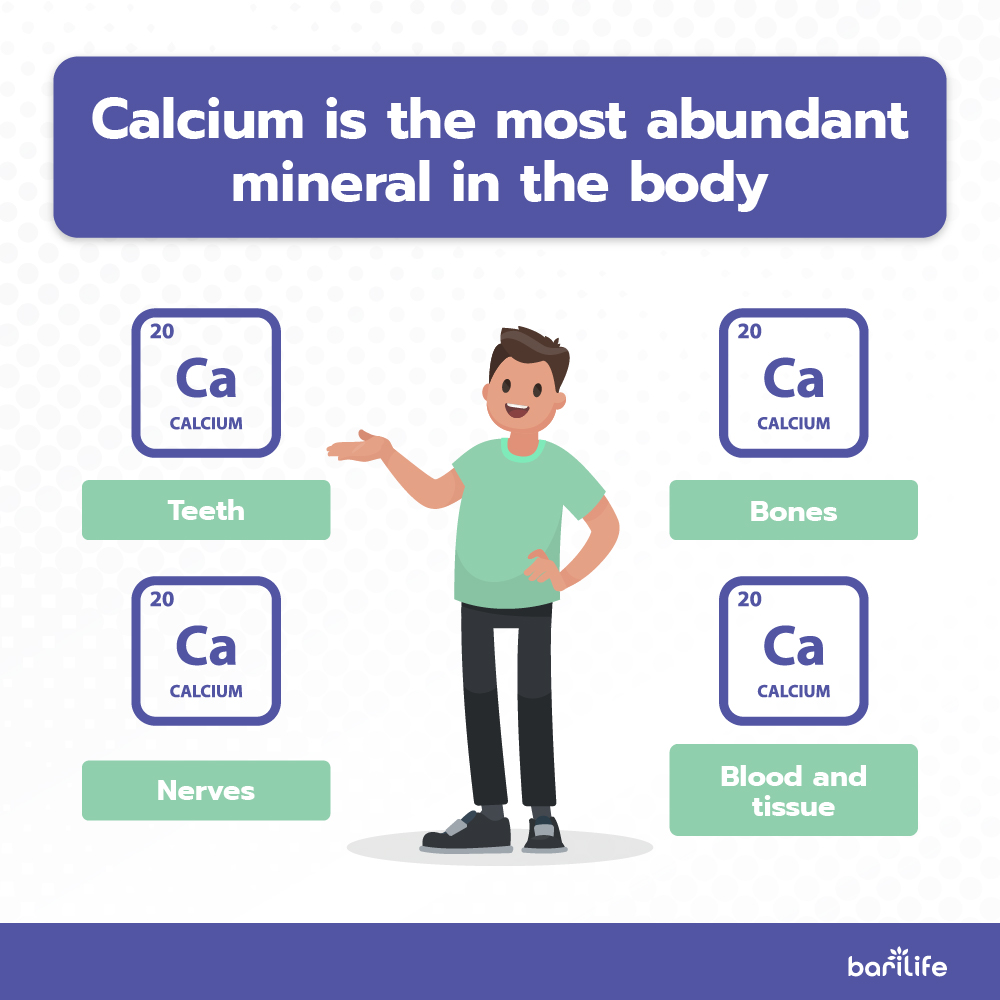
The role of calcium in the body
When most people think of calcium, they think of the role it plays in building strong and healthy teeth and bones.
When bones are developing during childhood and adolescence, they need plenty of calcium and vitamin D. After about age 30, the bones start losing calcium slowly over time. Calcium losses can be reduced by getting enough dietary calcium and by living a healthy, active lifestyle. Weight-bearing exercise also helps keep bones strong as they age.
In addition to the vital role calcium plays in keeping bones and teeth strong and healthy, it is also important for reproduction, maintenance of a healthy nervous system, as well as the proper functioning of the heart and other muscles.
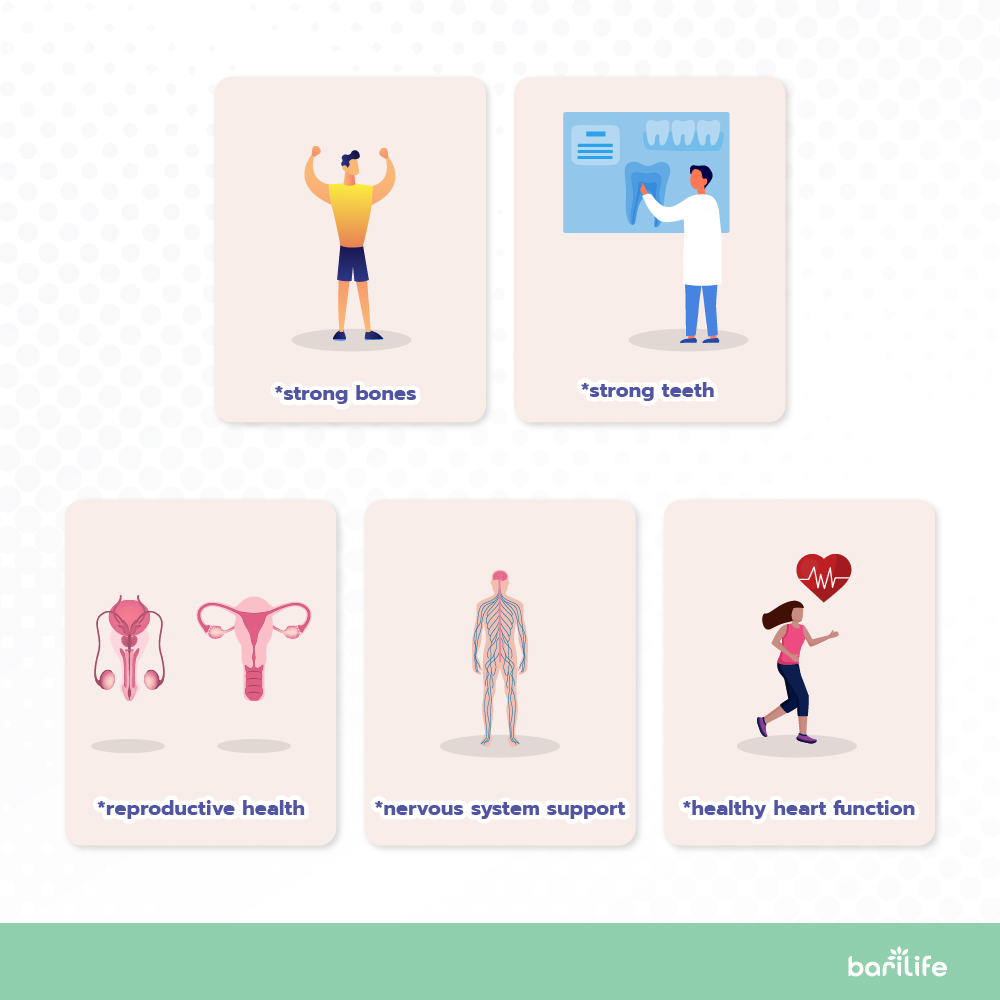
The ASMBS guidelines for Calcium
The American Society for Metabolic and Bariatric Surgery (ASMBS) issues guidelines related to the pre-and post-operative screening for malnutrition of specific vitamins and minerals. They also provide guidelines for the minimum intake required to prevent nutrient deficiencies.
The ASMBS recommends that patients be screened for calcium deficiency prior to weight loss surgery. It is especially important for pre-and post-menopausal women.
It is also recommended for all patients to be routinely screened for calcium deficiency after receiving weight loss surgery. Research shows that calcium deficiency is seen in a very high percentage of patients who undergo weight loss surgery.
Some people’s lab work will not indicate calcium deficiency even when they are deficient. This is because when the body does not get enough calcium from the diet or supplementation, it takes calcium from the bones, causing blood calcium levels to appear normal.
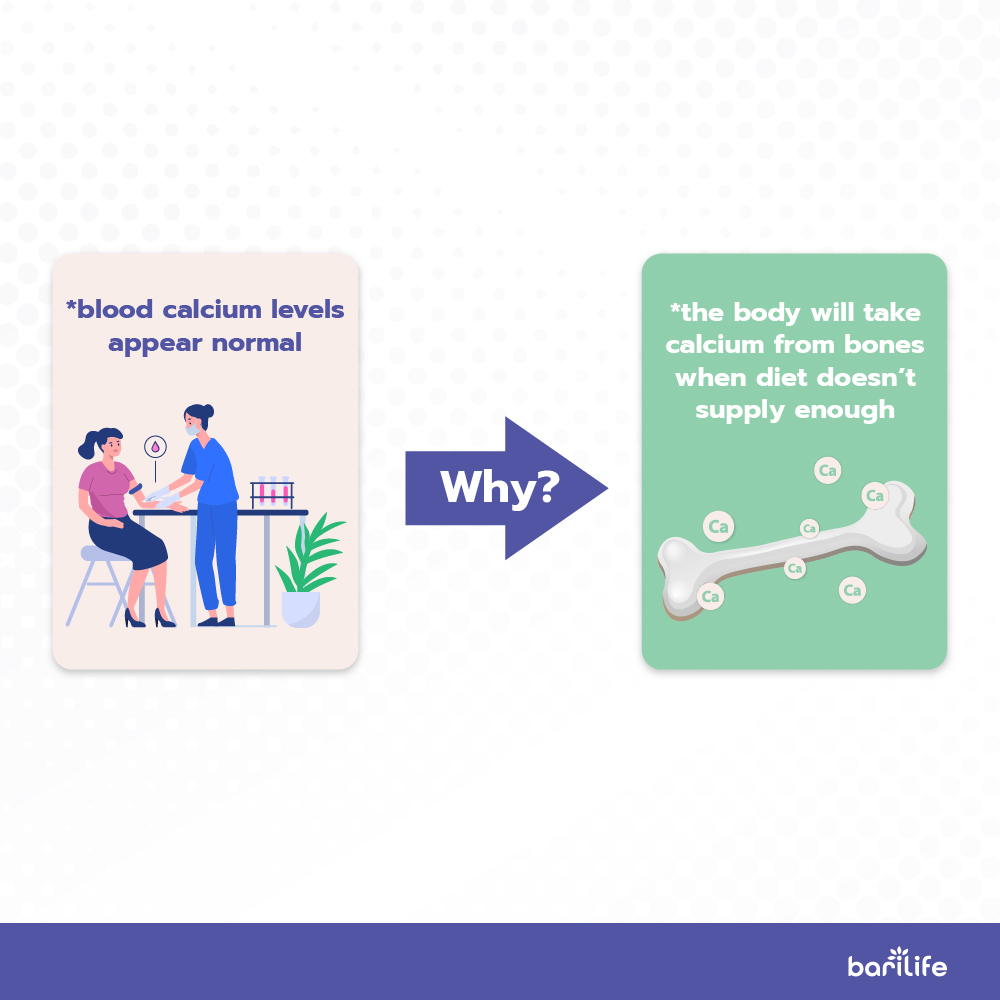
To prevent deficiency, patients should take supplemental calcium post-surgery every day for the rest of their lives. Specific recommendations for supplement dosing vary by procedure.
The recommended dose for calcium supplementation varies between 1800 – 2400 mg per day. Your doctor will prescribe you the right amount based on your procedure and serum levels.
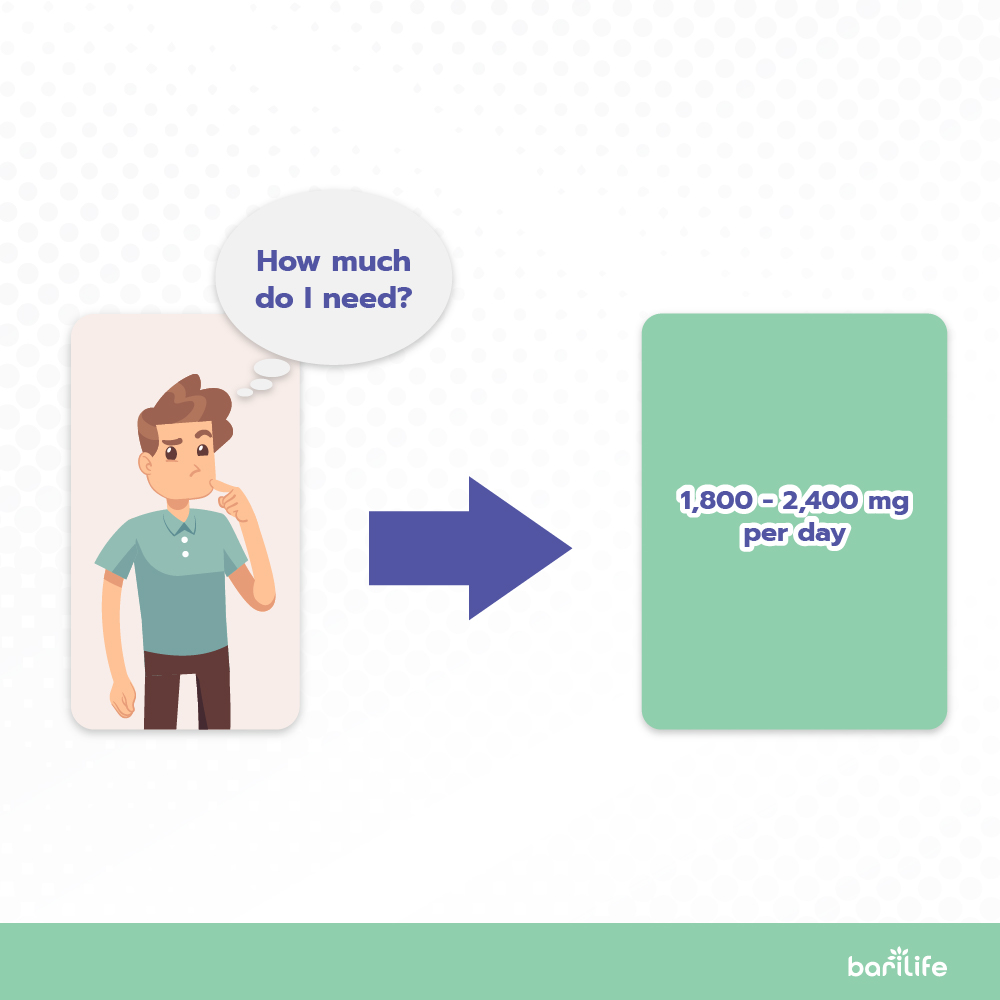
Signs, symptoms, and complications that can arise for becoming calcium deficient
Many people are at an increased risk for calcium deficiency as they age. People who have had weight loss surgery are at an even greater risk for calcium deficiency. This is due to decreased absorption of vitamins and minerals that occur as a result of the surgery.
About 50% of patients who have undergone weight loss surgery have decreased intestinal acid production. Due to this reduction in stomach acid, calcium is no longer properly absorbed. Given the body’s decreased ability to effectively absorb vitamins and minerals through digestion, it is almost impossible to get enough calcium through diet alone.
Many people who are calcium deficient are unaware that they are lacking this vital nutrient due to the fact that early symptoms are generally mild.
Severe symptoms of calcium deficiency include:
- Confusion or memory loss
- Muscle spasms
- Numbness or tingling in the hands, feet, or face
- Depression
- Hallucinations
- Dry and brittle hair and nails
- Easily fractured bones
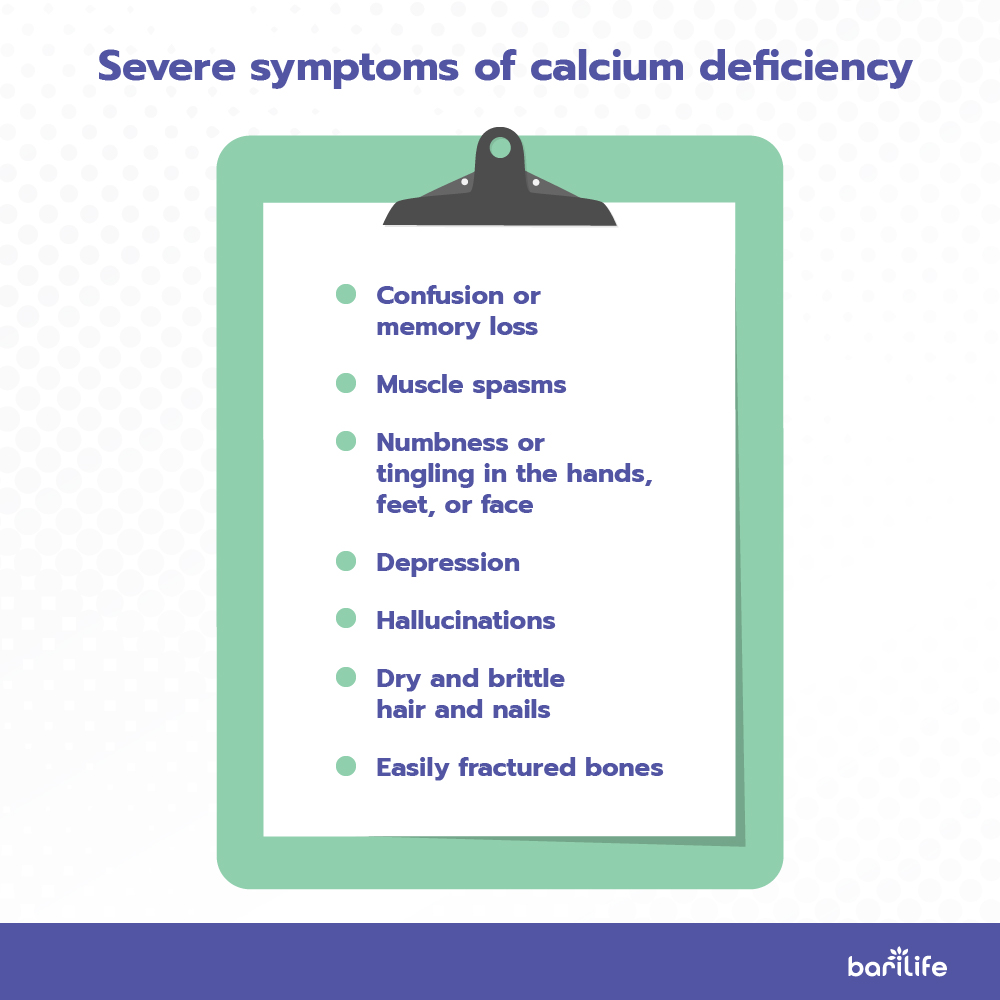
Severe, prolonged calcium deficiency can result in metabolic bone disease, disorders of the bone caused by mineral abnormalities in the blood (e.g. calcium). The most common bone disease associated with calcium deficiency is osteoporosis. Others include osteopenia and calcium-deficiency disease. Maintaining adequate bone mineral density is vital to preserving the quality of life in older adults, making calcium and vitamin D supplementation necessary following gastric bypass surgery.
Weight loss surgery impairs the body’s ability to properly absorb nutrients, so calcium supplementation is needed to support strong bones, a healthy nervous system, and maintain proper functioning of the heart and muscular system.
Bari-Life vitamins has exactly what you need
There is an overload of vitamin and mineral supplements on the market, and they are not all created equal. There are a variety of different brands and doses, not to mention products that contain multiple vitamins in one supplement. It can be really difficult to figure out what vitamins to take and how to choose which product is right for your needs.
After bariatric surgery, you need to supplement many different vitamins to keep you healthy. This can also be very overwhelming if you have to take multiple pills at different times of the day.
When it comes to calcium supplements, you will find different forms, some of which are better for absorption after weight loss surgery. The most common forms of calcium are calcium carbonate and calcium citrate.
Calcium carbonate requires stomach acid for the breakdown and absorption of the mineral. Calcium carbonate is often used in supplements because it’s inexpensive, and it’s a smaller molecule. This allows manufacturers to easily minimize pill size and dose.
Most multivitamins contain calcium carbonate, which is not readily digested in the post-bariatric surgery patient. Remember, about 50% of weight loss surgery patients experience a decrease in the production of intestinal acid. If stomach acid is required to digest and absorb calcium carbonate, then it must not be the best option out there for people who have had bariatric surgery.
Calcium citrate, however, does not require stomach acid for it to be fully digested and absorbed. Calcium citrate is commonly used to treat calcium deficiencies, particularly in people who have had weight loss surgery.
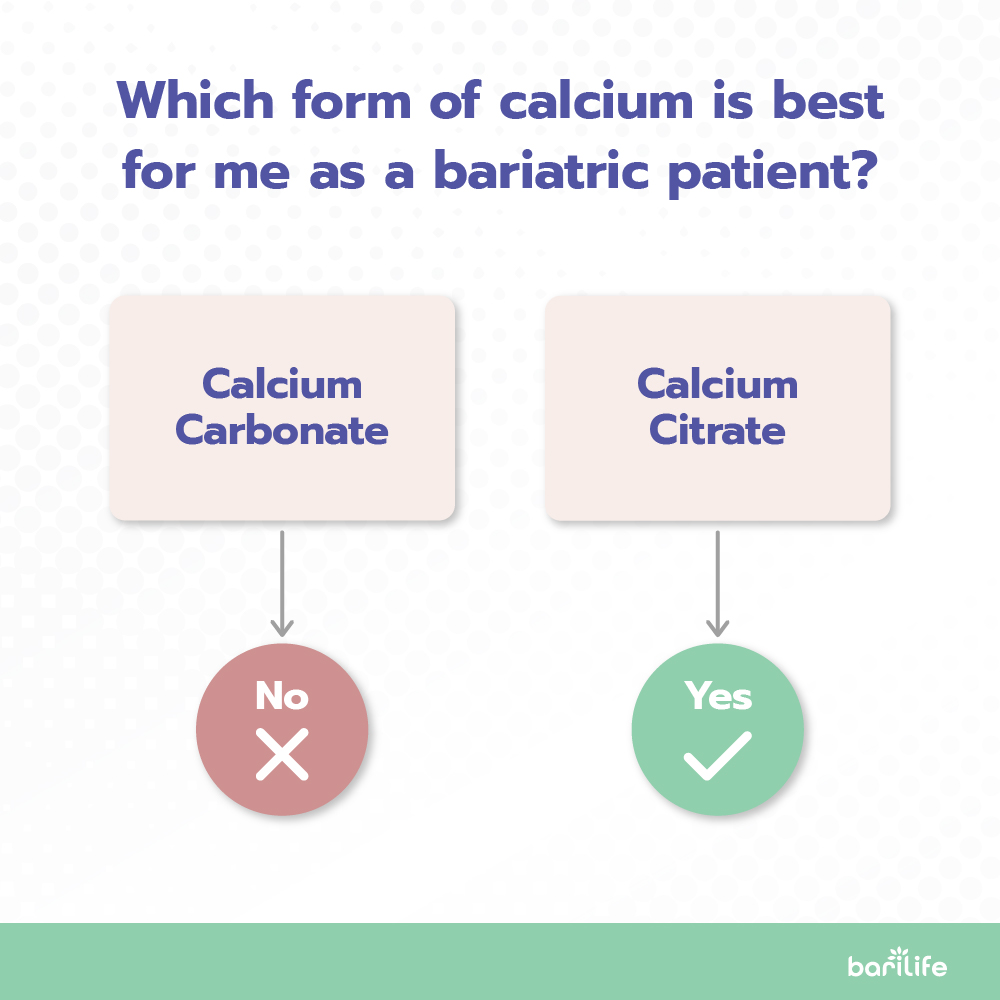
Bari Life takes the guesswork out of vitamin supplementation and simplifies supporting your nutritional needs. Bari-Life Vitamins are formulated and developed by a team of bariatric medical professionals with one goal in mind – to help bariatric patients get the nutrients they need to stay healthy.
They offer a variety of different options, from tablets to powders, to chews, helping you get the correct amount of vitamins and minerals in the least amount of pills possible. Each Bari Life calcium citrate chew contains 500 mg of calcium citrate. Enjoying three delicious chews per day gives you exactly what you need to prevent calcium deficiency.
Staying on track with lifestyle changes like diet and exercise is important to your success after bariatric surgery, so trust in the vitamins from Bari Life to provide you with the supplementation you need to stay healthy.




What are your tips and tricks to post-bariatric success?